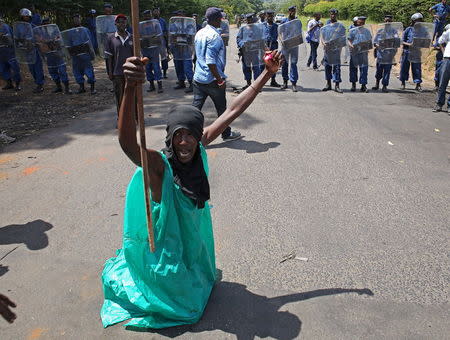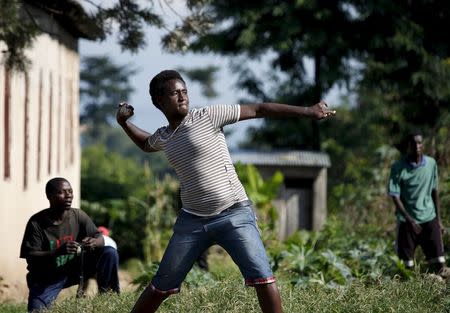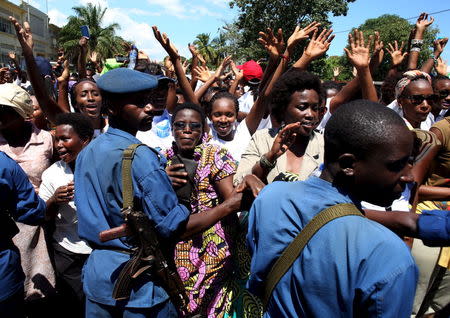Fleeing Burundians flock to western Tanzania, camps overwhelmed
By Kizito Makoye KIGOMA, Tanzania (Thomson Reuters Foundation) - When heavily pregnant Hadija Mchume saw everyone in her Burundian village packing up to flee political violence, she knew she had to join them. "It was a terrible moment for me, but I was strong enough to run away because I wanted to spare the life of my unborn baby," Mchume told the Thomson Reuters Foundation. Just days from her due date, the 23-year-old fled the violence that had engulfed her neighbourhood equipped with gauze and a razor blade -- in case she had to give birth on the move. She made it to Kagunga on Lake Tanganyika, where she gave birth to a healthy baby boy just hours before boarding a boat to Kigoma in western Tanzania. Mchume was among thousands of Burundian refugees flocking to Kagunga in Tanzania to board the MV Liemba — an aging ferry hired by the U.N. refugee agency UNHCR to transport those fleeing across the lake. More than 50,000 Burundians have fled to neighbouring countries in recent weeks amid violent protests triggered by President Pierre Nkurunziza's plan to run for a third term. Opponents of Nkurunziza say his bid for another term violates the constitution and a peace deal that ended Burundi's ethnically-charged civil war in 2005. According to Tanzania's ministry of home affairs, 11,000 Burundian refugees, including more than 8,000 women and children, have streamed into western Tanzania, overwhelming the capacity of local and international humanitarian organisations. The refugees face the risk of diseases such as diarrhoea and cholera due to poor sanitation, overcrowding and a lack of food, said James Rusana, chairman of Lusolo village in Kagunga. Winnie Nabatanzi, who arrived at Lusolo on Saturday with her family from the Burundian capital Bujumbura, said she feared for the health of her young children. "The water is dirty and there are no toilets here and you can see human faeces are all over the place," she told the Thomson Reuters Foundation in the village. Tanzania is already home to one of the largest refugee populations in Africa, sheltering hundreds of thousands of Burundians and Congolese, and last year unveiled plans to grant citizenship to 200,000 Burundi refugees. The fresh violence has plunged Burundi into its worst crisis since the 12-year war, which pitted rebels from the ethnic Hutu majority against the then Tutsi-led army and killed about 300,000 people. The military is now a mixed force. The U.S. government has said it is worried about reports that Imbonerakure, the youth wing of Nkurunziza's CNDD-FDD party, had been armed, an allegation the government denies. Many of those who have fled say they were threatened by Imbonerakure and fear violence. Local residents in western Tanzania said this was the greatest single influx of people in several decades of volatility in the central African region. "There is only one dispensary in this village with only one health professional. Most areas surrounding the village are littered with garbage," said Juma Hamisi, a resident of Lusolo. Tony Laiser, the coordinator of refugee services in Kigoma region said the government was doing everything possible to screen and provide shelter for Burundian refugees. He said that the Nyarugusu camp in Kasulu district -- one of the largest camps in the world -- was overwhelmed with almost 60,000 refugees already at the camp. "We don't have the capacity to accommodate more refugees at Nyarugusu but ... the government is working out to find alternative accommodation for the arriving asylum seekers," Laiser told the Thomson Reuters Foundation. (Additional reporting by Dotto Elias, Editing by Ros Russell and Belinda Goldsmith)




